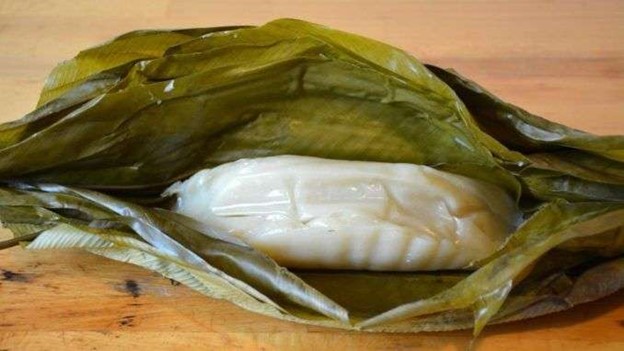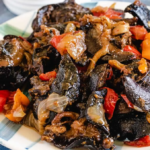When it comes to traditional Congolese cuisine, Chikwanga stands out as a beloved staple. This steamed cassava bread is a culinary delight that showcases the rich flavors and unique ingredients of the Democratic Republic of Congo. With its soft and moist texture, earthy aroma, and subtle sweetness, Chikwanga is a true representation of Congolese culinary heritage.
The Essence of Chikwanga
Chikwanga holds cultural significance in the Congolese community and is deeply rooted in the country’s culinary traditions. It is often enjoyed as a main course or as a side dish, complementing a variety of Congolese meals. The bread is not only a source of sustenance but also a symbol of togetherness and celebration.
The Making of Chikwanga
Chikwanga is made primarily from cassava, a starchy tuber widely cultivated in Congo and other African countries. The process begins with peeling and grating the cassava roots. The grated cassava is then soaked in water to remove the natural toxins present in the raw root.
After soaking, the cassava is drained and squeezed to remove excess moisture. The resulting cassava pulp is then mixed with coconut milk and a touch of salt to enhance the flavor. The mixture is poured into banana leaves or aluminum foil, folded into neat packages, and tightly secured.
Steaming to Perfection
The wrapped cassava mixture is then placed in a large pot or steamer over boiling water. The bread is steamed for several hours, allowing the flavors to develop and the cassava to cook through. This gentle cooking method ensures a moist and tender texture, similar to a cake or pudding.
The result is a fragrant and slightly sweet cassava bread that is enjoyed for its unique taste and soft consistency. The steaming process imparts a delicate flavor and retains the natural sweetness of the cassava, making Chikwanga a delightful treat.
Serving Chikwanga
Chikwanga is traditionally served in slices, allowing individuals to enjoy its soft and moist texture. It is often enjoyed alongside meat or vegetable dishes, providing a satisfying balance to the meal. Some people prefer to drizzle honey or syrup over the bread to enhance its sweetness further.
The Significance of Chikwanga
Chikwanga holds cultural significance in Congolese society and is often prepared for special occasions and celebrations. It is a dish that brings people together, fostering a sense of community and sharing. Chikwanga represents the importance of traditional foods in preserving cultural heritage and celebrating the diversity of Congolese cuisine.
Congolese Chikwanga is a steamed cassava bread that embodies the essence of Congolese culinary traditions. Its soft and moist texture, earthy aroma, and subtle sweetness make it a delightful addition to any meal. Whether enjoyed as a main course or as a side dish, Chikwanga offers a taste of Congolese culture and a comforting culinary experience. So, savor the flavors of this traditional delicacy and immerse yourself in the rich heritage of Congolese cuisine.








